Can Depression Cause Insomnia? Understanding the Connection Between Depression and Sleep
Depression is the most common mental disorder in the world, affecting over 264 million people. Characterized by sadness, hopelessness, social isolation, and mood swings, depression can impact numerous aspects of your life — including your sleep.
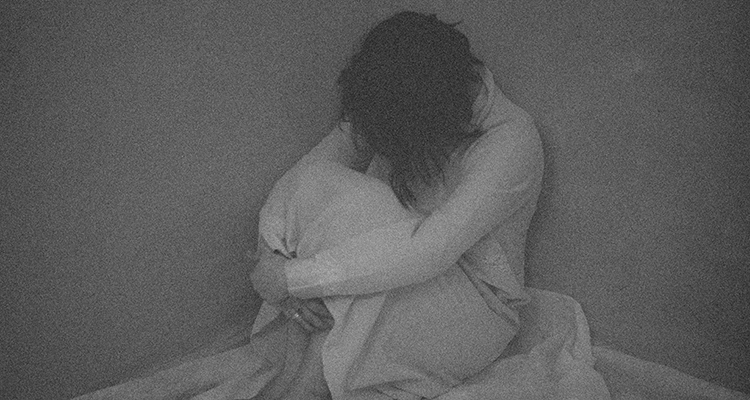
There’s a close connection between depression and sleep patterns. For example, individuals suffering from insomnia are at a higher risk of developing depression and 75% of depression sufferers report having trouble falling or staying asleep.
To avoid this vicious cycle it’s important to understand the close relationship between these two conditions to help ease symptoms and live a healthy, fulfilling life.
Content
Warning Signs and Causes of Depression
There’s no specific factor that causes depression. This mental disorder impacts people of all ages, economic classes, backgrounds, and genders. Feelings of sadness and helplessness are often triggered by trauma and major life changes.
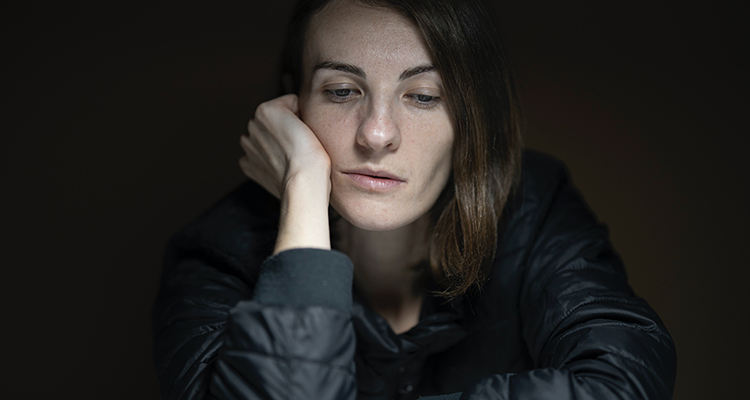
While these symptoms subside in many people after a few days, if they persist for 14 days or more, it may be a sign of serious depression. Here are a few more warning signs that your feelings of sadness are more serious than just having a bad day.
- Hopelessness
- Helplessness
- Social isolation
- Anxiety/paranoia
- Irritability
- Extreme emotions/mood swings
- Changes in appetite
- Fatigue
When these symptoms remain for more than 2 weeks in a row, last for most of the day, and occur almost every day, they classify as a depressive disorder. These symptoms can greatly impact your life, making it difficult to function at work, school, and in your personal life. Men and women react differently to depression. Men often exhibit anger and irritability while women express guilt and sadness.
Depression can also drastically impact your sleep patterns. Many depression sufferers find it difficult to fall and stay asleep due to constant changes in mood. Overwhelming sadness may also cause people to sleep excessively, only to wake feeling unrested and irritable. That’s because they’re not getting quality sleep. Excessive sleeping and napping during the day also make it more difficult to fall asleep at night.
There’s no one cause of depression but, instead, a variety of external factors that can leave people feeling helpless and alone. Specific illnesses, medication, family history, trauma, and major life changes can increase your risk of depression.
Some of the same lifestyle choices and external factors that cause depression can also cause insomnia. Major events, trauma, and stress are some of the leading causes of insomnia. Things like divorce, death, financial stress, and a traumatic event top the list of causes for both depression and insomnia.
While lack of sleep doesn’t normally cause depression, it can make symptoms worse. Individuals who are tired and irritable due to insomnia are less equipped physically, mentally, and emotionally to handle their depression symptoms, creating a vicious cycle.
Diagnosing Depression
Diagnosing depression starts with a self-assessment and recognizing the warning signs. If your feelings of sadness, irritability, and hopelessness either worsen over time or persist, it may be time to seek a professional diagnosis. Doctors, therapists, and psychiatrists can all help determine the depressive disorder you have and suggest treatment options. Some specialists will also perform a test to help give them a better idea of your situation including symptoms and medical history.

Similar to depression, there’s no specific way to diagnose insomnia. Medical professionals suggest treatment, including medications, based on the severity of your symptoms and how long they’ve been present.
In an effort to diagnose depression, doctors may also refer patients to a sleep disorder specialist. Certain sleep conditions including RLS (restless leg syndrome) and sleep apnea can not only cause insomnia but also cause and worsen depression symptoms.
Types of Depressive Disorders
Not all depression looks the same. Everyone exhibits different symptoms and warning signs that determine the type of depressive disorder they’re battling. Some symptoms overlap. For example, loss of interest in daily activities and sadness are common threads among all depressive disorders. Diagnosis is also impacted by the cause (or situation in which they develop) and how severe symptoms are.
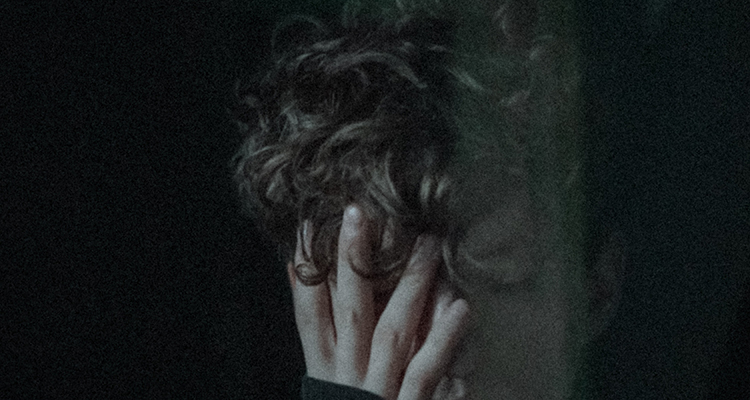
The most common form of depression is major depressive disorder. Symptoms of this condition affect an individual’s life almost all day, every day, for 14 days in a row. Major depressive disorder is marked by major sleep disturbances. Difficulty staying asleep is often caused by stress, anxiety, and even nightmares.
Premenstrual dysphoric disorder and seasonal affective disorder are forms of depression that only last for short periods of time but can trigger significant changes in healthy sleep patterns.
Chronic depression is also very common and marked by persistent symptoms. This form of depression often involves only a few of the symptoms associated with major depression but often lasts for months or even years. Many patients only enjoy momentary relief for 60 days or less before symptoms creep in again. The stress and anticipation of the depression’s return can cause insomnia symptoms including restlessness and difficulty falling asleep.
A Closer Look at the Connection Between Depression and Sleep
Depression may cause insomnia and chronic insomnia or poor sleep quality can cause depression. It’s this back-and-forth exchange that makes the connection between these two conditions so complex and difficult to treat. Both doctors and patients struggle to determine which issue to address first and which is the root cause of their symptoms.
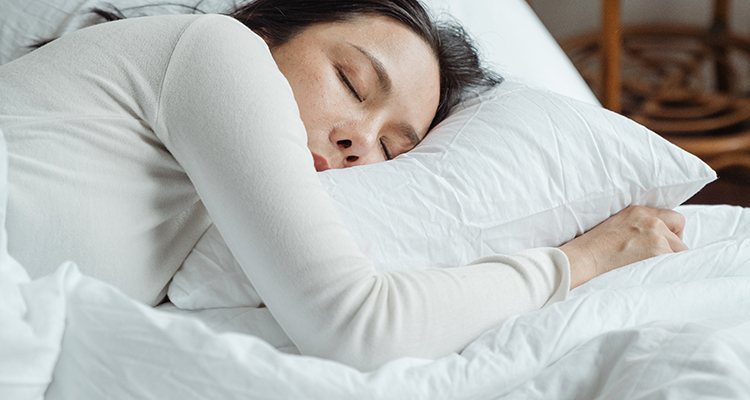
Most people diagnosed with depression cite sleep problems including the inability to sleep, lack of quality sleep, or excessive sleepiness. Although most people with depression have insomnia, sleep apnea and hypersomnia are also common. The opposite of insomnia, hypersomnia causes excessive sleepiness.
The inability to sleep can trigger depression symptoms due to changes in how the brain’s neurotransmitter serotonin functions. Recurring sleep disturbances can cause extreme stress, interfering with your body’s natural circadian rhythms and putting you at a higher risk of developing depression.
Treating Depression and Insomnia: A Dual Approach
Because depression and sleep disorders are so closely linked, treatment is often closely related, similar, or is used together to ease overlapping symptoms.

Let’s start by discussing common ways to treat depression.
Depression Treatment
As with any mental disorder, medical and mental professionals work together to create a customized treatment plan for your specific needs. Specialists take into account the type of symptoms you have and their severity. Here are some of the most common forms of therapy used to treat depression.
Therapy and Counseling
Several types of counseling are used to help treat depression, with the most popular being cognitive-behavioral therapy (CBT) and interpersonal therapy (IPT). CBT-I is a unique type of behavioral therapy that focuses on treating chronic insomnia.
Brain Stimulation Therapy
Another form of therapy but slightly more intense than CBT is brian stimulation. The most common form is ECT or electroconvulsive therapy. Through VNS (vagus nerve stimulation) and rTMS (repetitive transcranial magnetic stimulation), magnetic pulses are used to target certain sections of the brain that control feelings of sadness. Not everyone is open to this treatment method. If you are, it must be done under the guidance of a medical professional.
Medication
Medication is often the last resort in terms of treating depression. Unfortunately, in many cases, it’s necessary for a comprehensive approach. Antidepressants are a popular and effective way to treat depression and easy symptoms. You may need to try several different medications to find what works best for you. These antidepressants also take time to work, so patience is a must.
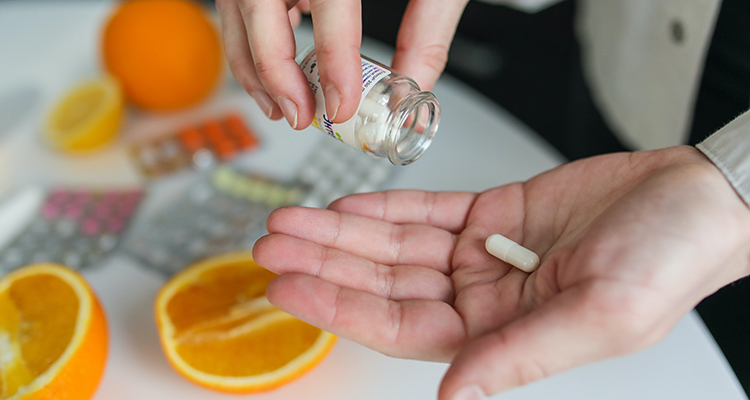
Insomnia Treatment
In addition to treating and easing depression symptoms, it’s important to address your insomnia. Gone untreated, insomnia symptoms can exacerbate your depression. Insomnia also puts you at greater risk of developing depression and relapsing after recovery. The sooner you treat your sleep problems, the less likely you are to slide down the slippery slope of depression.
Therapy
The same forms of therapy that help to treat depression can also address your sleep troubles. CBT, along with psychodynamic therapy, and interpersonal psychotherapy can help you identify and process feelings that may be causing both your depression and insomnia. These therapies help you ease depression symptoms and, in turn, better cope with lack of sleep and restlessness.
Maintain a Healthy Lifestyle and Schedule
Humans thrive on routine and schedule — and so does your body. Maintaining a healthy sleep schedule is imperative for treating insomnia but often difficult for individuals with depression to achieve. Try setting a specific bedtime and set an alarm for the morning. Create a nightly routine that triggers your body for sleep. Some effective methods include reading before bed, writing in a journal, enjoying a cup of hot tea, or practicing mindfulness and meditation.

Spending time outdoors is another great way to not only fight off depression but improve sleep quality. Sunlight helps align your body’s circadian rhythm. When the sun rises, it alerts your body that it’s time to wake up and become active. When the sun goes down and darkness rolls in, your body recognizes it’s now time for sleep and starts producing melatonin. Spending time outdoors is a quick and effective way to trigger your brain’s natural chemicals as well as improving your mood.
Avoid Certain Stimuli
Engaging in certain activities (like exercise) too close to bedtime can interfere with your natural sleep patterns. Indulging in things like alcohol and heavy meals before bed can also have adverse effects. While alcohol might initially make you tired, once its effects wear off, most people experience restless sleep.
When you eat too close to bedtime, it triggers your body to start the digestion process and stay awake. Meals especially heavy in fat and sugars can cause stomach cramping, gas, and heartburn, making it difficult to fall and stay asleep.
For those individuals suffering from depression and also experiencing sleepiness, taking a midday nap is a tempting prospect. While it may make you feel better momentarily, napping during the day will have adverse effects and wreak havoc on your sleep. Some evidence suggests that a 10 to 20-minute “power nap”, when used in moderation, can actually help regulate emotions and reduce fatigue. Just be sure to nap carefully. Naps longer than 20 minutes can interfere with your nightly routine and naps that are 10-minutes or less may not offer as many benefits.
Coping with Depression and Insomnia
When battling both depression and insomnia or any mix of the two, the road to recovery can be long and difficult. With the right approach and treatment methods, you can identify the root cause of your issue and take the necessary steps to relieve symptoms.

Try to be in-tune with your feelings and triggers. Combat feelings of sadness by incorporating exercise into your daily routine. This will also promote better sleep. A well-rested mind is better equipped to deal with depression symptoms.
Don’t be afraid to ask for help. Depression can be a very isolating condition and is often accompanied by feelings of helplessness and hopelessness. It’s important to have a support group around you that understands your condition and offers positive tools and resources. The same can be said for overcoming insomnia. A partner who supports your sleep schedule and nightly routine are crucial. Together, you can create a calming sleep environment complete with dim lighting, soothing sounds, and minimal distractions.
It’s also important to be realistic about the healing and recovery process. Treating depression and insomnia won’t happen overnight. You may need to try several treatment approaches and medications before finding the right fit. Be honest about which condition is plaguing you most. The good news is, treating either depression or insomnia first will inadvertently help ease symptoms caused by the other. A medical professional is best equipped to identify which condition requires immediate attention.
If your feelings of depression or overwhelming exhaustion due to insomnia leave you feeling hopeless, it’s important to recognize suicidal thoughts and seek help immediately.
Don’t Let Depression or Insomnia Rule Your Life
There is hope when it comes to treating and overcoming both depression and insomnia. Whether you’re struggling most with feelings of sadness and frustration or, instead, extreme exhaustion and irritability caused by insomnia, help is available. The first step is recognizing and being honest about your symptoms. Once you get over this hurdle, you can start on the road to recovery.

At Somnus Therapy, we’re dedicated to giving you your life back. Through a mix of therapies, activities, and resources, we help treat sleep disorders and insomnia from the comfort of your home. This online program is perfect for those dealing with insomnia caused by depression or those who fear their depression is creating a sleep disturbance.
Find out more about how Somnus Therapy works by clicking here and always be sure to seek professional help if your depression symptoms worsen or you experience thoughts of hurting yourself or others.















